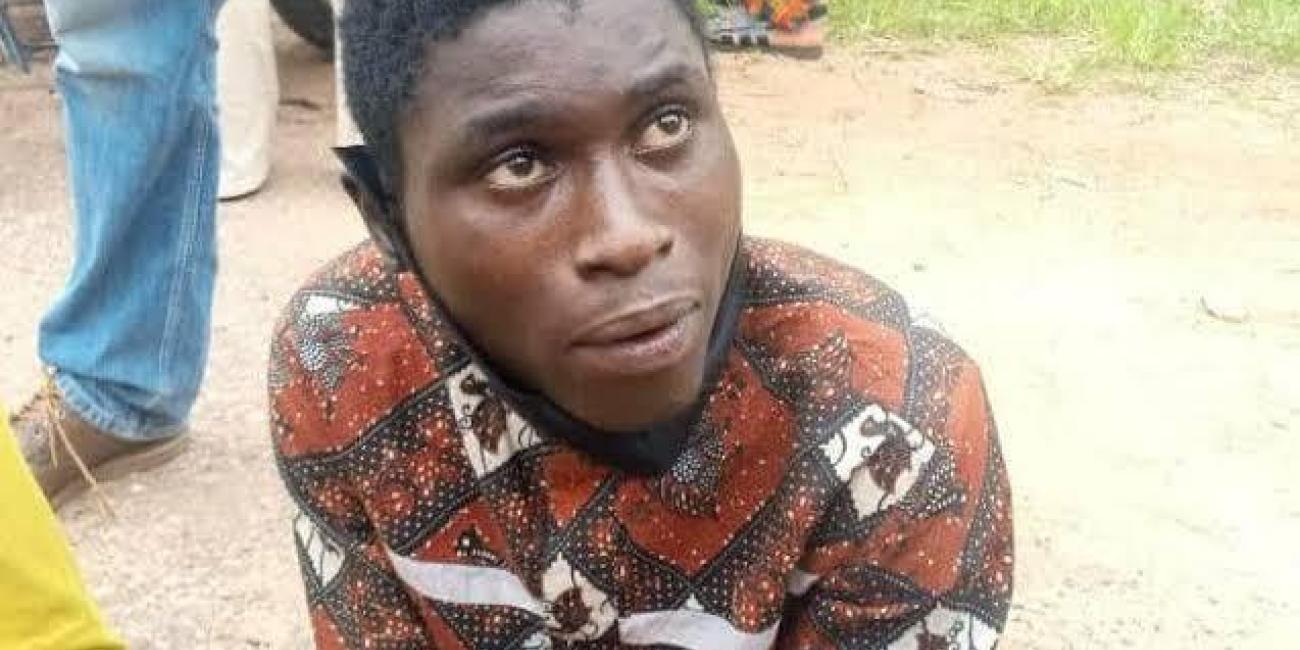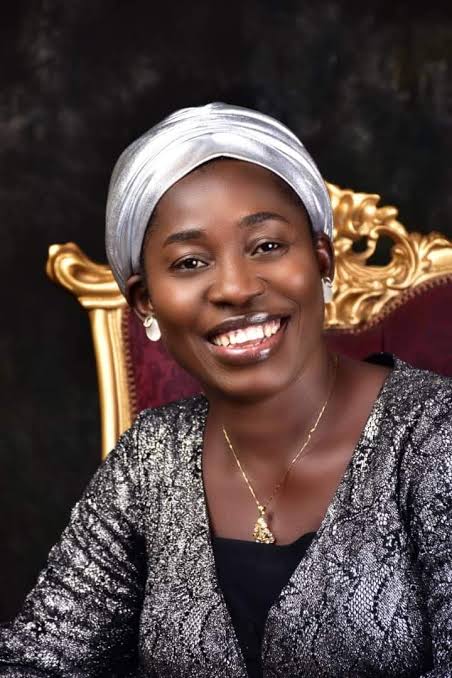For Nigerians active on social media, it has been a difficult last few months. First, there were reports in July that a man had stabbed his girlfriend to death in his home. The suspect went on the run.
The matter still weighed heavy on the minds of concerned Nigerians when they were hit with another gut-wrenching report: Another man had killed his girlfriend. The incident followed a horrifying trend of femicide in Nigeria and the Federal Ministry of Women’s Affairs seems to be missing in action — as usual.
EDITOR’S PICKS
-
Navigating Nigeria’s Economic Waters: Unraveling the Inflation Conundrum
-
Consequences Of Turning A Blind Eye To Government’s Missteps: The Buhari Example
-
Singer Cassie Accuses Ex-Boyfriend Diddy Of Rape, Sex Trafficking In Explosive Lawsuit
Femicide is a hate crime broadly defined as the intentional killing of women or girls because they are female. It often takes the form of domestic violence, honour killings, and other gender-motivated violent acts leading to the death of women.
According to a study, a spouse or partner is responsible for almost 40% of homicides involving a female victim. This disturbing statistic is consistent with some public femicide cases in Nigeria in 2023 alone.
THE MINISTRY OF WOMEN AFFAIRS IS MISSING IN ACTION
The Federal Ministry of Women’s Affairs was established by Decree No. 30 of 1989 to lead the process of ensuring gender equality and protecting women’s welfare. However, the ministry has prioritised “empowerment” over protecting the interests of women. While “empowerment” is vital to the welfare of women in a multi-dimensionally poor country, it should not be at the expense of tackling agelong issues affecting women.
Unfortunately, the women’s affairs ministry has not been the most vigorous defender of vulnerable women as it should be. For example, the Dean of the Faculty of Law, University of Calabar, Cyril Ndifon, was accused of sexual harassment by multiple students in August. It was not the first time the university don had been accused of sexual misconduct.
In 2015, Ndifon was suspended by the school authority after he was accused of raping a 20-year-old law student in his office, an allegation the professor challenged in court.
His suspension was lifted about a year later under unclear circumstances.
Ordinarily, you would think that the Minister of Women Affairs, Uju Kennedy, would be on the side of the victims. But that did not seem to be the case. She seemed to be more with the alleged sex offender than she was with the victims which left many perplexed.
Instead of offering unreserved support for the latest victims of the professor, the new minister launched veiled threats at the victims. She was caught on tape threatening to send them to jail if she found out they were lying. She later apologised.
The minister’s threats represent a setback in the fight against gender-based violence and other crimes against women. While false accusations should be wholly frowned upon, it is no secret that thinly veiled threats may cower victims to silence.
By standing up to a powerful individual, the students were already displaying immense courage and did not need someone who was supposed to join their battle making them question if they were doing the right thing.
Threats from a highly placed official like the minister may also have devastating consequences on campuses nationwide.
Curiously, Minister Kennedy has yet to react to the horrible killings of Augusta and Justina publicly. Her silence is deafening.
There are some talks of combatting gender-based violence on the social media accounts of the minister and the ministry, but when actual incidents of gender violence stared them right in the face, they were nowhere to be found. This reality is undoubtedly disturbing.
Presently, Benjamin Best, who ironically named himself Killaboi, is waiting to be extradited from Sierra Leone more than three months after he killed his girlfriend. The victim’s brother has accused Nigerian authorities, who did little or nothing to secure the suspect’s arrest, of slow-walking the extradition.
Unfortunately, the Ministry of Women’s Affairs couldn’t be bothered to intervene in the situation and get justice for a grieving family. The ministry’s lackadaisical attitude to women’s plight cannot continue. It must stand up to be counted and ensure that perpetrators are swiftly dealt with to serve as a deterrent for others who may want to commit similar crimes. That is how you stop future occurrences.
Minister Kennedy and her ministry can save the lives of girls and women by paying attention to the femicide epidemic. They have the responsibility to fix the problem, and they must.
In the last three years alone, there have been at least eight high-profile femicide cases in Nigeria. This data does not include unreported cases, as experts believe cases are underreported, with only a few incidents making it to the news. For many of the cases known to the public, the killers are either yet to be identified/arrested, or investigations and legal proceedings are still ongoing.
2020: UWAILA OMOZUWA
On May 27, 2020, the death of Uwaila Omozuwa, a 100-level student at the University of Benin, sparked intense outrage. She was raped and assaulted by assailants in a parish of the Redeemed Christian Church of God (RCCG) in Edo State.
Omozuwa had gone there to study when the attackers forced themselves into the church, subjected her to sexual assault and inflicted head injuries on her using a fire extinguisher.
Although efforts were made to save her life, she died a few days after the attack.

Her death caught the attention of the then-President of Nigeria, Muhammadu Buhari, who directed involved stakeholders to ensure justice was served.
But justice is yet to be served. In fact, the most recent news report on the matter was published in 2021. In the report, the sister of the victim said the family was still waiting for justice to be served.
“There has really been nothing,” she said, referring to justice. “The first time my family went to court, there was not much deliberation, and the case was adjourned. Nothing really, it’s just about going to the court, and they’re always adjourning.”
2020: BARAKAT BELLO
On June 1, 2020, 18-year-old Barakat Bello was raped and killed in her parents’ house in Ibadan, Oyo State.
Barakat was a student of the Institute of Agriculture, Research and Training (IAR&T) in Ibadan before the incident.
Reports revealed that she was returning home after fetching water for her bath when she met suspected thieves, who raped and cut her with machetes until she died in the house.

The Oyo State police command subsequently arrested and paraded a 19-year-old man, Sunday Shodipe, suspected to be behind the killing.
Unfortunately, Bello might have just been one of the many female victims of Shodipe, a suspected serial killer, who was accused of killing four others in Akinyele Local Government, Ibadan, Oyo State capital.

On June 5, a pregnant woman, Azeezat Shomuyiwa’s head was smashed with a stone. On June 13, Grace Oshiagwu, a female student of Oke-Ogun Polytechnic, was killed in the local government.
Since 2020, there has been little or no update regarding the suspected serial killer.
In December 2021, after Barakat’s father died, partly due to the trauma of his daughter’s death, his wife lamented that the police had been frustrating the case.
“We are tired because the police are not helping in the matter. The day they said they will take him to court, we were in the court but they did not bring him. They have refused to give us information on the matter, to tell us why they have not taken Sunday to court. For us, we have let go of the matter and left everything to God to judge. My husband died over this matter,” she told Sahara Reporters.
2021: HINY UMOREN
Hiny Iniobong Umoren, a philosophy graduate from the University of Uyo (UNIUYO), had gone for a job interview in Akwa Ibom State when she met her tragic end in April 2021.
She was found dead after being declared missing on April 29.

Uduak Akpan, her 20-year-old killer, pleaded guilty to the murder charge against him, and he was sentenced to death by hanging in August 2022.
Akpan lured 26-year-old Umoren under the pretext of a job offer to his family’s residence in Nung Ikono Obio village, where she was raped and murdered. Her body was then buried in a shallow grave.
2022: BAMISE AYANWOLE
Bamise Ayanwole was on her way home from work in Ajah, Lagos State, on February 26, when she was abducted after boarding a Bus Rapid Transit (BRT) vehicle heading to Oshodi from the Chevron bus stop.
Bamise’s mutilated corpse was found ten days later, with her last known message sent from within the bus, which one Andrew Nice Omininikoron drove.

The BRT driver, who disappeared after word went around that Bamise’s friends and family were at the bus terminal, was arrested on March 7, 2022.
He initially admitted to committing “dirty acts” against Bamise, but he later backpedalled, saying he knew nothing about the harm that befell Bamise.
2022: PRECIOUS OKEKE
In April 2022, Ifeanyi Njoku, a 28-year-old Lagos State resident, was arrested for killing Precious Okeke, his 24-year-old girlfriend, in the Ajah area of Lagos State.
Njoku admitted to killing his girlfriend for money rituals. The police revealed that a native doctor, who was assisting Njoku in the money ritual scheme, had instructed him to have sex with Okeke’s corpse.

The killer had engaged in the illicit act with his girlfriend’s corpse for six days before the stench emanating from his apartment made his neighbours alert the police.
2022: OSINACHI NWACHUKWU
The same month, Osinachi Nwachukwu, the singer of the famous gospel song Ekwueme, was allegedly beaten to death by her husband, Peter Nwachukwu.
Peter, who was accused of having a long history of abusing his wife, has, however, claimed that she died of lung cancer.

He is currently facing 23 criminal counts bordering on domestic violence and homicide, among others.
2023: AUGUSTA OSEDION
In July 2023, Killaboi callously and brutally murdered Augusta Osedion, his girlfriend.
The lifeless body of Augusta was discovered in her boyfriend’s residence at Oral Estate in the Ikota area of Lagos State.

Killaboi confessed to the crime after the victim was reported missing.
“I mistakenly stabbed her and ran away out of fear,” one of Best’s numerous social media posts read in part. “I want to do the right thing and turn myself in.”
But he did not turn himself. Instead, he fled the country on July 13, 2023. He was arrested in Sierra Leone on October 20, 2023, a few weeks after the Nigeria Police Force declared him wanted.
Although the police had said they were working on extraditing him to Nigeria to answer for his crimes, the victim’s brother recently said he was yet to progress nearly a month after he spent personal resources to secure his sister’s killer.
2023: JUSTINA OTUENE NKANG
A few days after Augusta’s killer was arrested, Nigerians were grappling with yet another femicide case. Okoligwe Damian Chinemere, a 400-level engineering student at the University of Port Harcourt (UNIPORT), killed Justina Otuene Nkang, his girlfriend, who is a 300-level student of Biological Chemistry at UNIPORT.
In the most disturbing development, Justina’s dead body was found mutilated in her boyfriend’s house a few days after she was declared missing.

FURTHER READING
-
Presidency Reacts To Allegations Of Signing LGBTQ Agreement
-
Femi Olugbile’s ‘Pelewura’ Tells History Of Lagos Women’s Bravery, Significance
-
Appeal Court Orders Fresh Governorship Election In Zamfara
Reports say that the suspected killer, who denies the murder, was trying to dispose of the corpse wrapped in a polythene bag when he was caught.
Philip Ibitoye writes for Eko Hot Blog. This media platform reserves all rights to this article.
Click to watch our video of the week:
Discover more from EkoHotBlog
Subscribe to get the latest posts to your email.
Advertise or Publish a Story on EkoHot Blog:
Kindly contact us at [email protected]. Breaking stories should be sent to the above email and substantiated with pictorial evidence.
Citizen journalists will receive a token as data incentive.
Call or Whatsapp: 0803 561 7233, 0703 414 5611

















